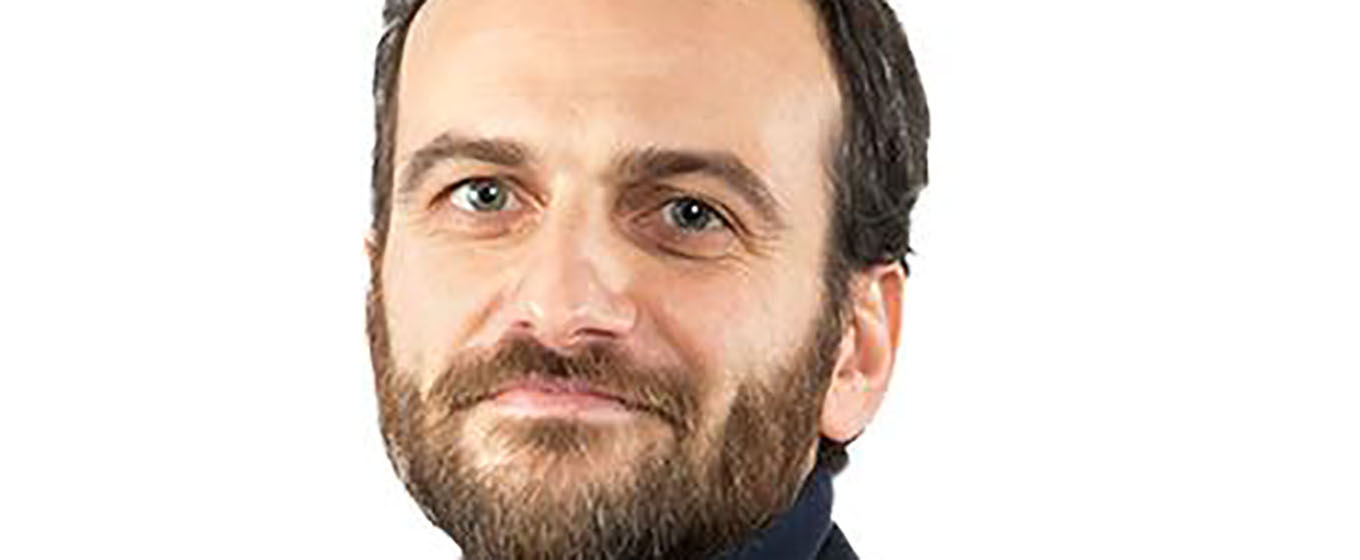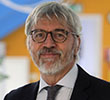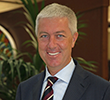Daniele Bellasio

What lies behind our presence on digital media is a wish to continue our relationship with current and prospective students. We called the first week of undergraduate course presentations "Unicatt Festival" and although we did wonder whether it was right to use the term ‘festival’ to describe an online event, and one happening at such a difficult time, we wanted to make it clear right from the choice of the name that we were going digital not simply out of necessity but also because we wanted to maintain a strong relationship with our students, their families and professors/instructors. This was why we also used specific words, formats and titles normally associated with live experiences. The same idea was behind the choice of name for the two weeks of undergraduate programme presentations. The byline was "Heart is reason": the basic idea was to reiterate the main value of our university – the individual is at the centre of everything.
The most successful formats were those talks which communicated our educational offer by positioning it at the heart of reality, as Father Agostino Gemelli would say, and at the heart of a reality that at that stage was, and still is, complicated. Putting themes of current affairs together with our knowledge and our degree courses makes it clear that the strength of a university like Cattolica, which is multidisciplinary and with a humanistic edge even in the hard sciences, lies precisely in the ability of knowing how to deal with the complexity of reality. Live streaming on Instagram was also very successful, where people could comment and ask questions in real time for input from, for example, teaching colleagues and orientation colleagues. Direct links on Linkedin were also of interest since this is a tool that students start using quite early on.
What can be replicated in the future? I am convinced that some events that once involved experts or professors travelling from abroad will certainly be done via webinars, which will increasingly be a hybrid model. Not only what we have done so far will remain, but much of what we have done so far will be incorporated into planning for communications, events and teaching.
What messages is the university sending to students enrolling for the next academic year? What criteria do you use in your choice of one message over another?
A good communications plan always starts from what you are going to say and not what you are going to do. First you need to know what story you want to tell, and be sure that it is in line with your identity, your mission, the reason behind the institution, and the terminology that can be used when talking about higher education. Then you decide how to communicate the message according to the means you have. In light of this, we want to say that Cattolica is a multidisciplinary university and hosts knowledge of all kinds. We also want to tell next year students: "Everything possible in person, everything necessary remotely". In other words, we don’t want anyone to discard the idea of enrolling at Cattolica because of what the Coronavirus has caused, and we are saying to new students: we want you on campus but should conditions not allow this for the first year you can attend remotely and you will be provided with everything you need. Then, when the crisis is over, we will go back to the physical lecture room more and more, and it will gradually be more possible to choose between the two options of online and being physically in the lecture room.
Looking at the next academic year and the uncertainty we still have to deal with today, how is Università Cattolica communicating with its students to reassure them about their academic future, keep them engaged and allow them to see things in the medium-long term?
We need to maintain the dialogue with our students with regular communications. We did this as soon as the Coronavirus emergency began, setting up a dedicated email address (infocoronavirus@unicatt.it) and answering over 4000 questions from students, questions that continue to this day. We have also done this from the beginning on social networks, where we respond individually to all queries with the support of the university offices. Then we have newsletters and the website –– where during the lockdown we published letters from the deans to students in two languages. The basic idea is therefore to be there for the students all the time, telling them exactly what is happening. There have been occasions when we haven’t been sure of the situation but we have replied saying for example "At the moment we cannot tell you how many of you can be in the lecture room at one time, but as soon as we have more information we will be sure to let you know via the app, the site, email or on social networks".
To make sure that they have a medium-long term view there are two things we communicate to students. The first is that we are investing appropriately so that lecture rooms are fully equipped for remote teaching, and that everywhere is totally safe – and this has been possible with the support of the Agostino Gemelli Polyclinic in Rome. The second point is that we explain to our students that the sacrifice they are making at this stage, e.g. not accessing the cloisters and so on, will be rewarded when they finish their student pathway with a qualification that is worth more and that will help them move better and sooner into the working world. Our communication strategy in the last few months has been based on three pillars: apart from health and safety measures and the hashtag #ecatt linking to the message "Everything possible with physical attendance, everything necessary remotely", the third pillar is employability, since this will be more difficult in the post-Covid future. Having doubts now or deferring courses might lead to personal and professional difficulties in the future. But however uncomfortable this phase proves to be it is important to get through it with the idea that in the medium or long term after finishing their studies at Cattolica, students will find themselves with something extra, not just from a personal point of view but also as far as their professional career is concerned. In any case, I feel very positive for our young people: I have seen them being wise, respectful of the rules and aware that all this will end at some point: it has been a tragedy, which has led to thousands of deaths, but the students once again has shown that their "desire for the future is stronger than fear”, a quote that I cite from a presentation by Professor Triani.
What was the university’s communications strategy for responding promptly to queries from students during the various phases of the COVID-19 emergency?
In a matter of hours, a team of almost 28 people reorganized to work remotely and we immediately set up the infocoronavirus@unicatt.it email address. I mention this again not so much because I consider it to be something original, but because it explains what our principle was right from the start: to communicate almost in real time with our students - sometimes replying to more than 200 emails a day, often saying we couldn’t give further information right away because we were still waiting for the government to publish new guidance. Basically, there was continuous contact, answering students and letting them know what we were working on. It would have been a mistake to wait until decisions had been made by the upper echelons, during which time the students would have felt they had been left unsupported. Our students always feel that we are with them on their journey and our goal was to make them feel that we were with them even when distant, by using all the tools we have, even Tik Tok. Then as soon as we had concrete decisions, they were communicated via the university website. The deans of the 12 faculties wrote to the students and their communications were sent via the Cattolica app and published online.
On a practical level, we reassigned a number of colleagues from our office to take care of communications with students and greatly expanded our staff working on social networks, institutional communications, and communications from the deans. We have used video widely, producing hundreds of institutional information videos and more than 60 hours of live social media to respond directly to students. Compared to other universities, our health and safety guidance has been published very clearly on the website. All without ever forgetting to be polite. I believe there is no better communications plan than being polite. Even if the students are agitated and want specific answers, for example about exam dates during the lockdown, the first rule is to give a polite answer immediately, explaining the real situation. In the end the exams were held, final exams for graduation were held and there were some beautiful scenes. As a student received her graduation pass during a final examination session, she was emotional, almost in tears, and a boy came into her room, gave her a kiss in front of the examination panel, and then left the room. It was a wonderful moment. What I mean is that if the intention is to maintain relations based on understanding and dialogue between people, then this can also be done via technological means.



 Paolo Nusiner
Paolo Nusiner
